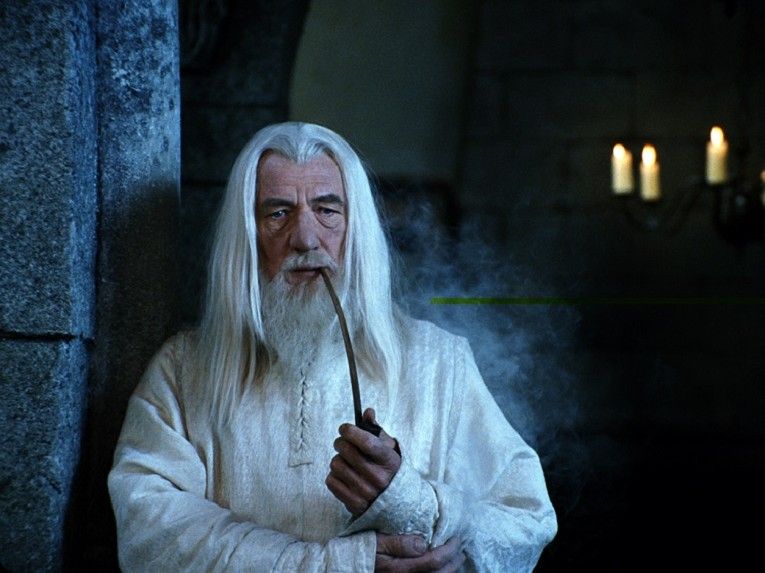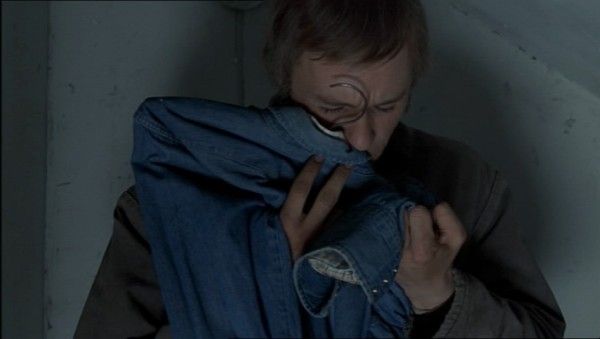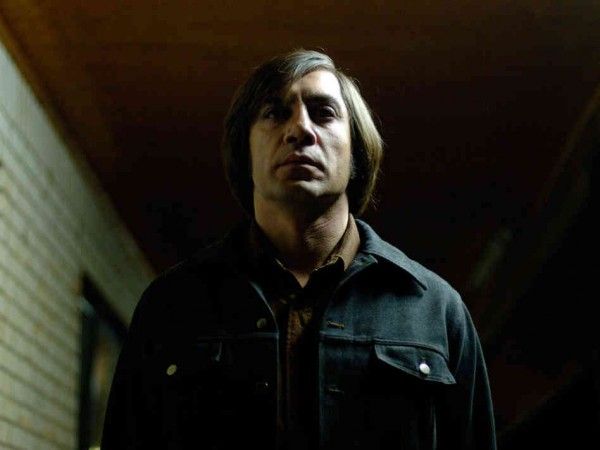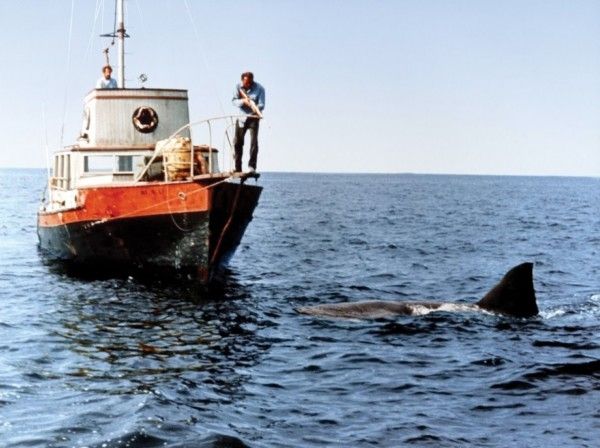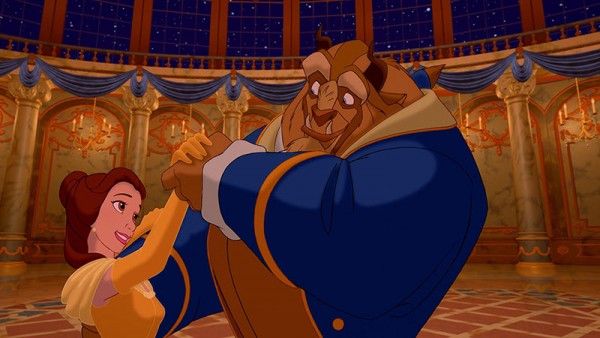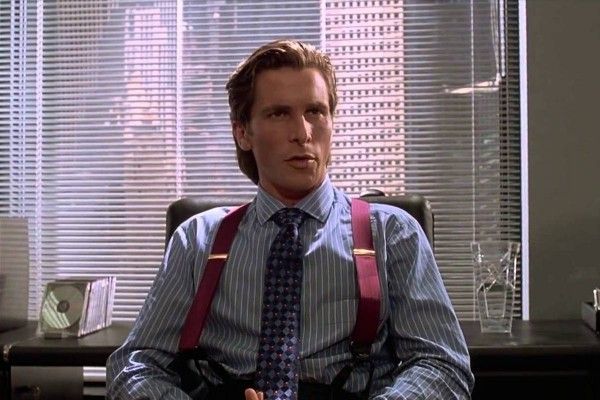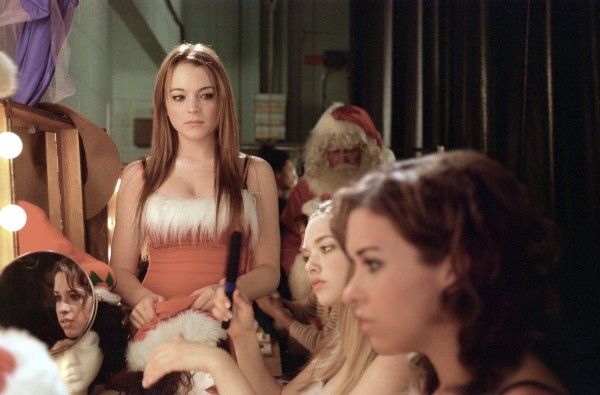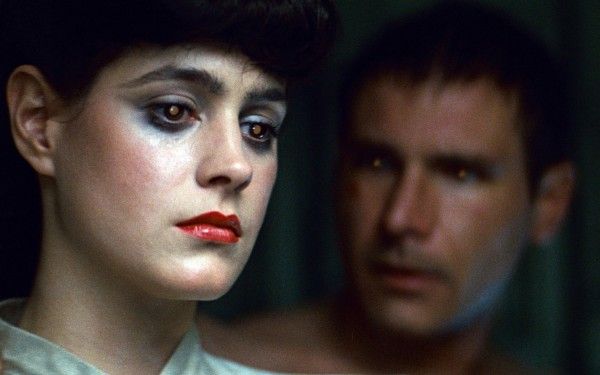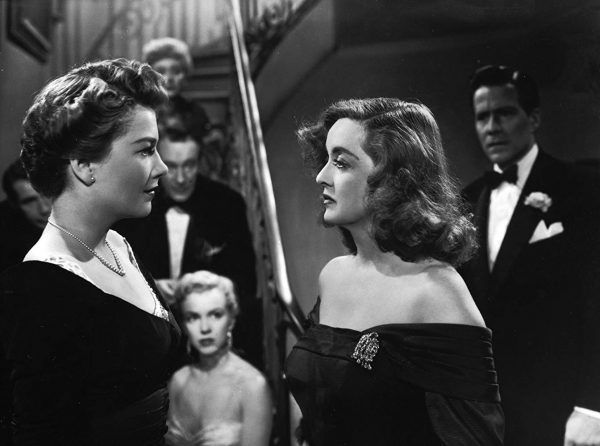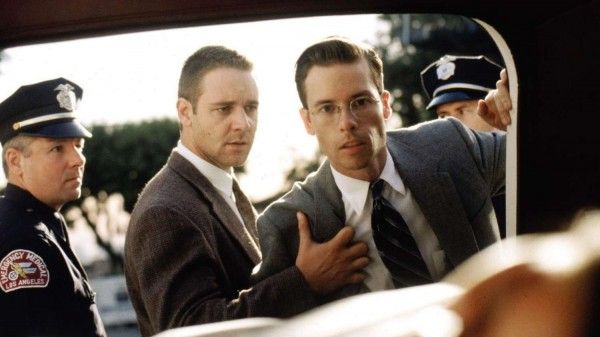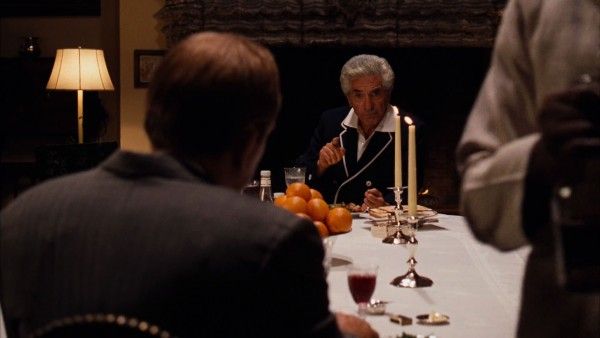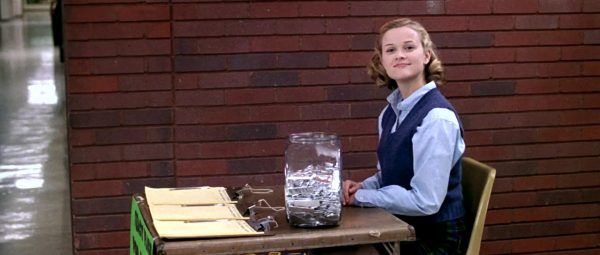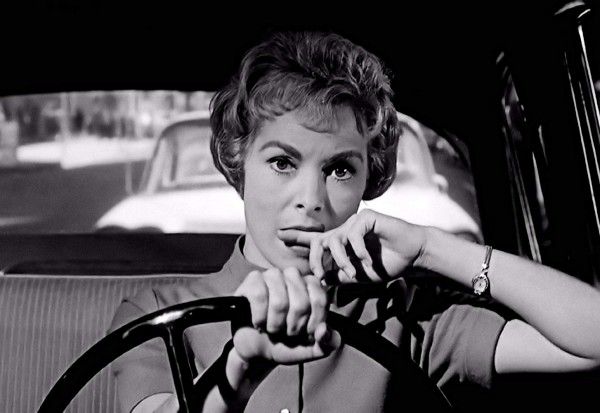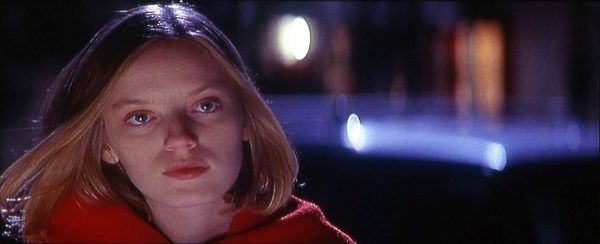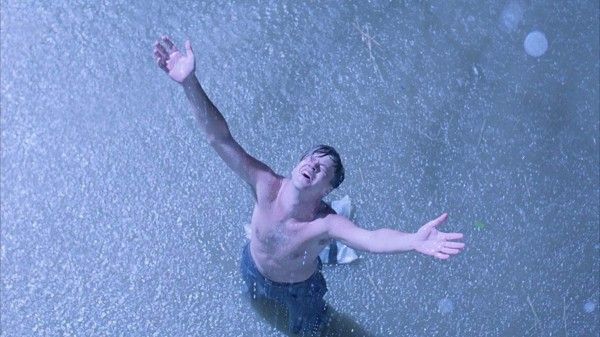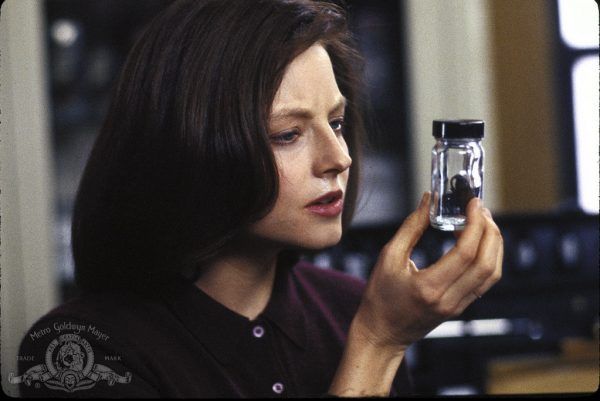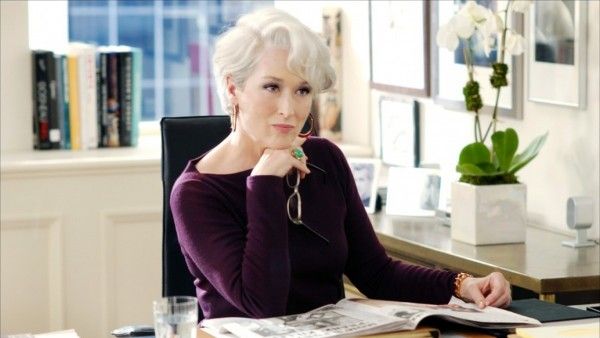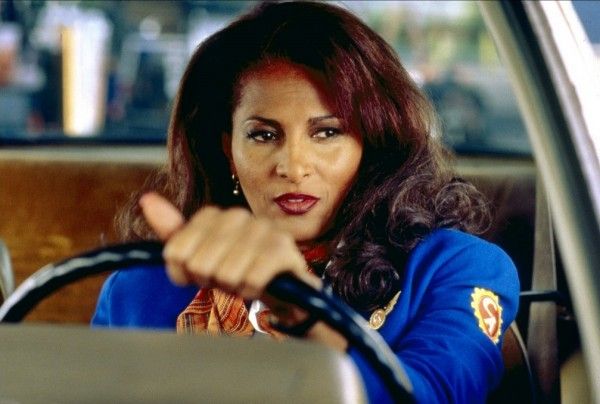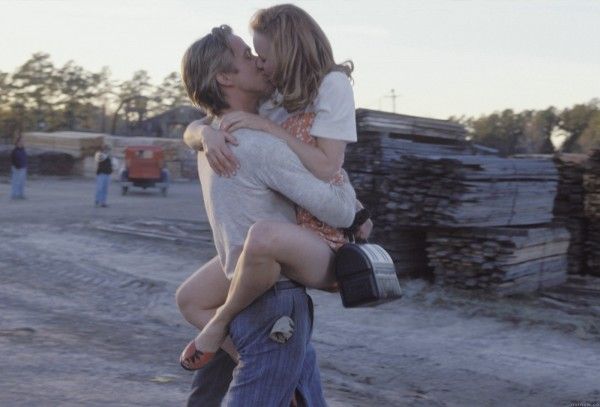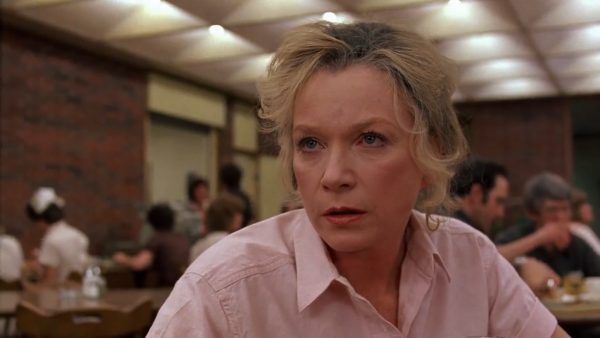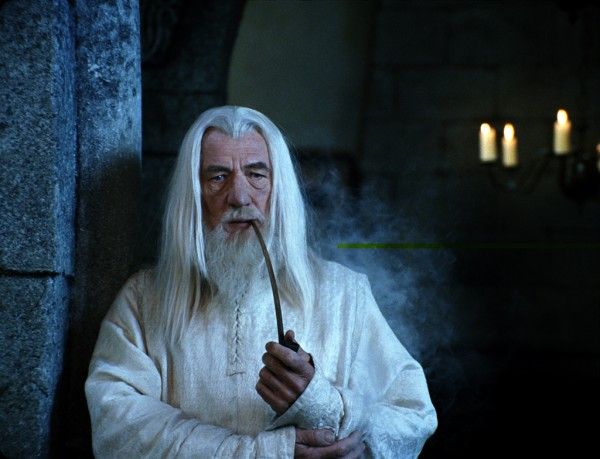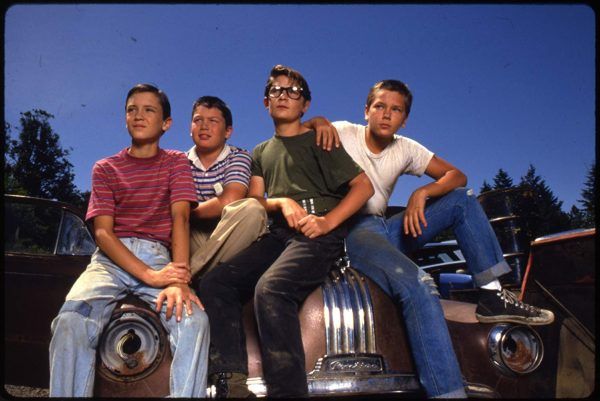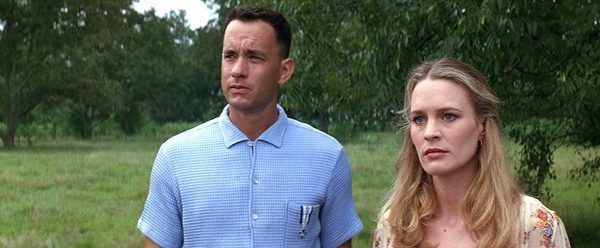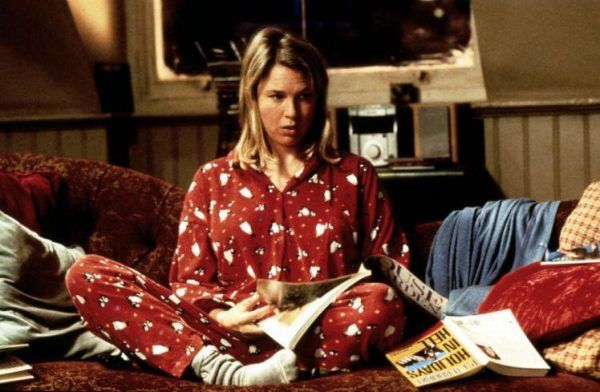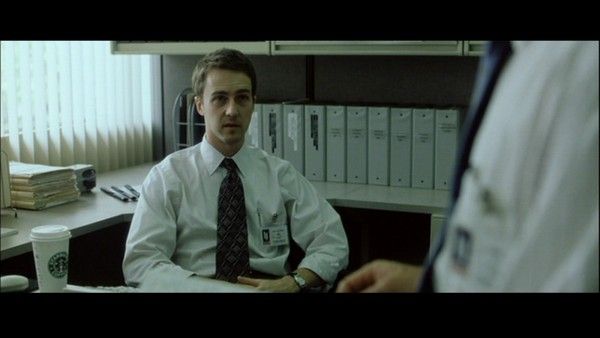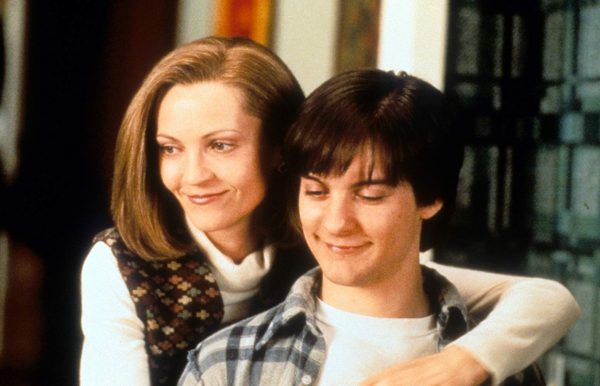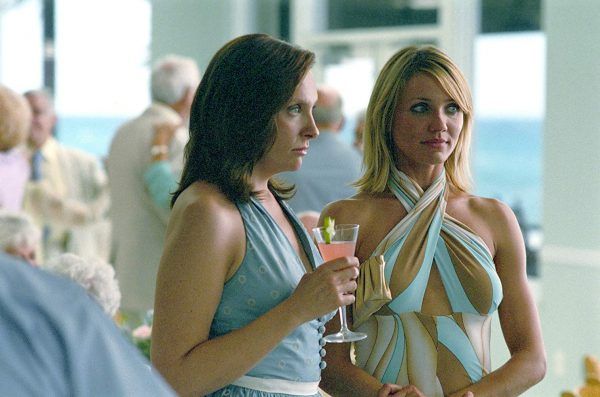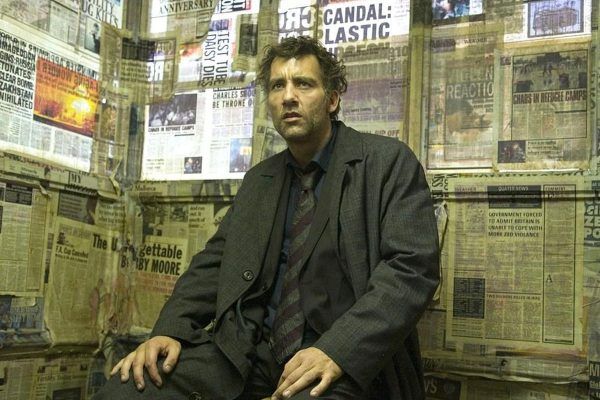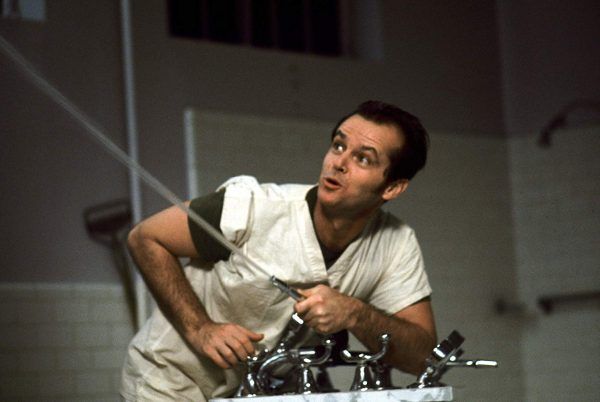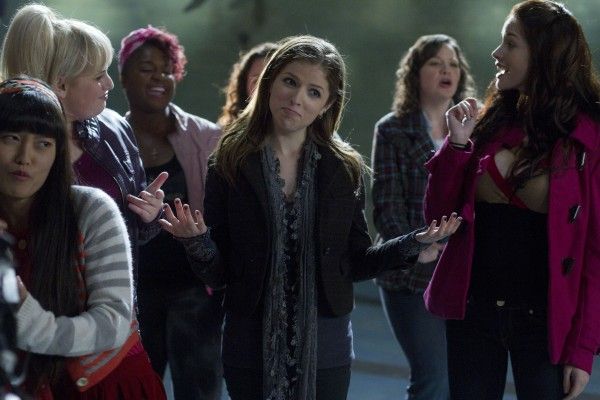Brokeback Mountain
There was no shortage of literary awards for Annie Proulx’s short story “Brokeback Mountain” when it originally ran in The New Yorker in 1997. Her tale of two Wyoming cowboys who form an intense emotional and sexual connection working alongside each other as sheepherders won a National Magazine Award for Fiction and was third in the O’Henry Awards.
The praise is well-deserved, but Ang Lee’s 2005 adaptation (for which he won a best director Oscar) truly breathes life into Proulx’s words with gorgeous cinematography, an Academy Award-wining score from Gustavo Santaolalla, and heartbreaking performances by Jake Gyllenhaal and the late Heath Ledger.
No Country for Old Men
Cormac McCarthy’s writing isn’t for everyone—especially readers who enjoy things like an adherence to grammatical norms. But there was a riveting, dark story buried in all the punctuation-free prose of No Country for Old Men, and Joel and Ethan Coen found it in their 2007 adaptation.
With stunning performances by Javier Bardem as a consciousness-free hitman on the run and Tommy Lee Jones as the small-town Texas sheriff chasing him, the flick cleaned up during awards season with Oscars for best picture, director, screenplay and a supporting actor nod for Bardem. Heads or tails, the Coen brothers nailed it!
Jaws
Before the days of CGI, Steven Spielberg proved that showing less is often a whole lot more terrifying in his 1975 adaptation of Peter Benchley’s novel about a small-town police chief (Roy Scheider) who teams up with a modern-day Captain Ahab (Robert Shaw) to rid his town of a killer shark.
The novel had some interesting things to say about class, but an awful lot of time was wasted on an implausible affair between the chief’s wife and a marine biologist. And of course the page could never compete with John Williams’ score, which still strikes fear in the heart of beach goers 45 years later.
Beauty and The Beast
It’s probably not fair to compare Disney’s 1991 animated classic to Jeanne-Marie Leprince de Beaumont's French fairy tale on which it’s based but. . . even more than Cinderella or Snow White, this story about a young woman who falls in love with her deformed captor belongs to the Magic Kingdom.
Like many of Disney’s princess adaptations, there’s not shortage of troubling stuff (a little Stockholm syndrome, some bestiality) but Alan Menken and Howard Ashman’s songs! Belle (Paige O’Hara) descending the stairs in that yellow dress! Angela Lansbury as a talking teapot; Jerry Orbach as a candelabra! It’s hard not to root for those crazy kids.
American Psycho
From the start, controversy embroiled Bret Easton Ellis 1991 satiric thriller about a young NYC investment banker specializing in mergers and acquisitions with a penchant for murders and executions. Most critics loved it, several feminists hated it, and some sellers deemed it so disturbing that it was sold in shrink-wrap and dropped by the original publisher.
Though director Mary Harron's 2000 adaptation remained mostly faithful to the tome, she was able to mine the dark humor, the gore becoming more social commentary than just sociopathic. And yeah Christian Bale hacking Jared Leto with an axe while critiquing Huey Lewis and The News is always a win.
Mean Girls
Shocking as it may seem Regina George (Rachel McAdams) and her minions were inspired by a self-help book for parents of teens. After reading Rosalind Wiseman’s Queen Bees & Wannabes: Helping Your Daughter Survive Cliques, Gossip, boyfriends and Other Realities of Adolescence, Tina Fey optioned the book and wrote her first screenplay.
While the text was full of anecdotes from Wiseman’s time leading high school empowerment workshops, Fey spun the scraps into a hysterical, sometimes heartbreaking yarn about a new girl (Lindsay Lohan in her prime) navigating the minefield of Girl World in high school. The whole thing is still totally fetch!
Blade Runner
Released in 1982, Blade Runner quickly became a postmodern and film school staple. In 2019 (yes, you’re old) former police officer Rick Dickered (Harrison Ford) is tasked with taking out bioengineered beings living among us in this dark, twisty dystopian world loosely based on Philip K. Dick’s 1969 novel Do Androids Dream of Electric Sheep?
Director Ridley Scott made major changes to the text, and Dick was extremely apprehensive. Though sadly, the sci-fi legend died before the release, even Dick came to the conclusion the flick was better than the book. After seeing rough cuts, he told producers, “My life and creative work are justified and completed by BLADE RUNNER."
All About Eve
Based on an anecdote Mary Orr heard about Viennese actress Elisabeth Bergner's overly ambitious secretary, Orr’s short story “The Wisdom of Eve” first appeared in Cosmopolitan Magazine in 1946. It’s a pretty minor work. The best-picture-winning All About Eve, which the story inspired, is anything but.
Even 70 years later, director Joseph L. Mankiewicz's drama still crackles as the tale of an aging Broadway star (an iconic Bettie Davis) who’s life is gradually usurped by her biggest fan (Anne Baxter). And the flick contains some of film’s most famed lines, so, "Fasten your seatbelts. It's going to be a bumpy night.”
LA Confidential
This Neo-noir crime thriller about crocked and straight Cali cops in the 1950s was a huge commercial and critical success when it hit theaters in 1997. With a terrific cast including—Kevin Spacey, then-newbies Russell Crowe and Guy Pearce, and supporting-actress Oscar-winner Kim Basinger—bringing the movie to life.
But the film found no bigger fan than the author James Ellroy, who claimed director Curtis Hanson did an excellent job compressing the story while “maintaining the overall dramatic thrust.” Says Ellroy, “The book is black type on white paper and the film is visual. It’s a brilliantly compatible visual form of the novel.”
The Godfather
Mario Puzo’s 1969 mob tale was a fun, sprawling adventure detailing the history of fictional NY mob boss Vito Corleone and his network of gangsters. It topped the NY Times Bestsellers list for more than a year and introduced English-speaking audiences to the words consigliere and caporegime.
But director Francis Ford Coppola’s 1969 film is widely regarded as one of the greatest achievements in cinematic history. Trimming many of the book’s unwieldy subplots (some of which reappear in the Godfather Part II), Coppola streamlined the narrative with a focus on youngest song Michael (Al Pacino). And of course Marlon Brando made a legendary Don.
Election
Reese Witherspoon’s performance as an overachieving, win-at-all-costs high school student is so iconic her character name “Tracy Flick” has actually become part of the cultural lexicon. But in Tom Perrotta’s 1998 novel, she was more “sexual manipulator” than “go-getter,” says Perrotta, who admits it was a “good change.”
That was just one of several switches director Alexander Payne made that elevated the novel about a disgruntled teacher (Matthew Broderick) who tries to sabotage Tracy’s run for class president. The biggest twist? The film actually has a darker ending than the book, but Perrotta says he didn’t feel at all betrayed.
Psycho
Marian Crane (Janet Leigh) in her hotel room shower, enjoying the warm water when Norman Bates (Anthony Perkins) pulls back the curtain and Bernard Herrmann’s discordant, unsettling score stabs as hard as Bates’ blade. The climactic murder in Psycho is one of the most iconic moments in all of cinema.
But in Robert’s Bloch’s 1959 novel of the same name, the murder is but a line. Alfred Hitchcock took the sometimes less-than-thrilling thriller to a whole new level. Building up the suspense by developing Marion’s character and making Bates more human, he made the murder something of legendary nightmares.
The Sweet Hereafter
Russell Banks' 1991 novel about the aftermath of school bus crash that kills most of a small upstate NY town’s children is an impressive feat. Told from four different first-person perspectives, readers empathize and ache for opposing characters, and the magnitude of the tragedy truly seeps in.
In his 1997 adaption, Canadian director Atom Egoyan improbably managed to capture the perspectives of all four narrators—a grieving father (Bruce Greenwood), a now wheelchair-bound teenager (Sarah Polley), the bus driver (Gabrielle Rose), and an ambulance-chasing lawyer (Ian Holm). And it goes one better eliminating an unnecessary epilogue.
The Shawshank Redemption
Stephen King is clearly one of horror’s undisputed masters, but his non-scary novella “Rita Hayworth and the Shawshank Redemption” was mostly forgotten in his mostly forgotten 1982 collection Different Seasons until writer/director Frank Darabont brought it to the screen as The Shawshank Redemption twelve years later.
Darabont expanded and heightened this prison drama about a wrongfully convicted murderer (Tim Robbins) and fellow inmate (Morgan Freeman). Though somewhat of a commercial failure at the time, the flick has since garnered multiple accolades and found its way onto several Cinephile’s lists of the greatest of all time.
Silence of the Lambs
Thomas Harris’ 1988 novel about a young FBI agent working with a cannibal psychiatrist to catch a serial killer making a girl suit out of human skin was the kind of book that had fans reading through the night...and then keeping the lights on after they finished.
Jonathan Demme’s 1991 adaptation was the kind of movie that had fans jumping in broad daylight. Sticking close to the text, the film was elevated by Oscar-winning performances from Jodie Foster and Anthony Hopkins. It also took home Academy Awards for film, director and screenplay. Fava beans and a nice chianti have been terrifying ever since.
The Devil Wears Prada
It certainly wasn’t great literature, but Lauren Weisberger's thinly veiled 2003 roman a clef about her first job as an assistant to Anna Wintour at Vogue Magazine was great gossipy fun and became a huge bestseller. But David Frankel’s 2006 film turned it the material from TopShop to haute couture.
Frankel and screenwriter Aline Brosh McKenna streamlined the plot and fleshed out some of the secondary characters, including an awesome Emily Blunt as a fellow assistant. And Meryl Streep as Wintour stand-in Miranda Priestly was a tour de force as an impossible boss with occasional glimmers of heart.
Jackie Brown
Rum Punch was as twisty and amusing as the rest of the Elmore Lenard canon, and in his 1997 flick, Jackie Brown, Quentin Tarantino closely adhered to the general story with one key switch; he changed the heroine’s race from white to black and cast Pam Grier in the role.
Grier was full-stop awesome as a flight attendant mixed up in a smuggling ring, and the supporting cast including Samuel L. Jackson and Robert De Niro wasn’t too shabby either. The highest compliment? Leonard loved it, saying it was his favorite of all the adaptations of his work and the best screenplay he ever read.
The Notebook
Nicholas Sparks is infamous for his syrupy sweet and tragic love stories, and the millions of copies he’s sold makes clear there’s definitely a market for the melodrama. But Nick Cassavetes' 2004 adaptation of 1996’s The Notebook found fans beyond those looking for a good cry with a dose of heavy-handed morality.
Ryan Gosling and Rachel McAdam's had chemistry that was off the charts as a pair of young lovers facing classic obstacles like war, disapproving parents, and her pesky engagement. For all its cheesiness, it’s nearly impossible not melt into a puddle when these two kiss in the pouring rain.
Terms of Endearment
This 1983 tearjerker about the troubled relationship between an aging southern belle (Shirley MacLaine) and her rebellious adult daughter (Debra Winger) cleaned up at awards season, taking home Oscar trophies for best picture, director, screenplay, actress (MacLaine) and supporting actor for Jack Nicholson as a playboy/retired astronaut—a character who wasn’t even in the book.
Larry McMurtry’s novel was witty and charming and big as Texas. But first-time director James L. Brooks got some career-best performances from his actors and worked every heartstring while managing to keep the cancer storyline from devolving into mush. There are even some great one-liners.
Lord of the Rings
Legions of Tolkienites will scream blasphemy about The Lord of the Rings making this list, but Peter Jackson’s 2001-2003 Oscar-winning trilogy is really good. Jackson streamlined J.R.R. Tolkien’s massive books and brought the narrative into focus, and the movies visuals are genuinely stunning.
Strong performances by Ian McKellen, Elijah Wood, Orlando Bloom and Viggo Mortensen upped the ante, while Jackson even gave a handful of tangential female charters meatier things to do. Howard Shore’s Academy Award—winning scores gave everything a heightened importance, and the eye-popping special effects, well, they were just precious.
Stand By Me
Not to pick on Stephen King, he really is a great writer, but director Rob Reiner’s Stand By Me was a far better film than King’s 1992 novella “The Body” (also in Different Seasons). The story of four friends—Will Wheaton, River Phoenix, Corey Feldman, and Jerry O’Connell—searching for a dead body is roughly the same as the book.
But Reiner nailed the emotional turmoil of that period just before adulthood. And Richard Dreyfuss' voice-over brought everything home. “I never had any friends later on like the ones I had when I was twelve...Jesus, does anyone?"
Forrest Gump
Like its famed box of chocolates, director Robert Zemeckis’ best picture-nabbing Forrest Gump had it all. Award-winning performances from Tom Hanks, Gary Sinise, Robin Wright and Sally Field, gorgeous cinematography across the nation, Oscar-winning visual effects, and a soundtrack that makes you stand up and yell, “America!”
There’s also a lot of plot in this flick about a simple man with a generous heart who finds his way into the center of much of modern history. But Winston Groom’s 1986 novel was crammed with even more—including a slapstick-y subplot where Forrest becomes an astronaut. It also had less tragedy—Jenny doesn’t die!
Bridget Jones's Diary
Helen Fielding’s 1999 novel was a fun, raunchy romp about a 30-something singleton’s misadventures in work and romance. Unique for its “diary” format, woman everywhere could relate all too well to Bridget’s daily logging of her weight and caloric intake. And fans wondered how director Sharon Maguire would bring that to the screen in 2001.
Worries intensified when slender American Renée Zellweger was cast as the plump, British Bridget, but Zellweger sparkled (even scoring an Oscar nom). While love interest Mark was a bit of snooze in the book, Colin Firth brought out his charm, and Hugh Grant was an absolute hoot as his romantic rival.
The Princess Bride
It’s hard to find a kid from the eighties who doesn’t count this 1987 film among their childhood favorites. And as the frame story with Fred Savage suggests, it really was based on a book. Working with director Rob Reiner, novelist William Goldman wrote the screenplay of his 1973 tome.
Call it the magic of the movies, but the flick brought the love story between farmhand/dread pirate Wesley (Cary Elwes) and his beloved and bossy Buttercup (Robin Wright in her first feature role) to life in a earnest fairy tale, all while managing to keep the book’s wit and wordplay intact.
Fight Club
The first rule of Fight Club is don’t talk about how David Fincher’s 1999 film is superior to Chuck Palahniuk’s 1996 novel...or do. Palahniuk himself loved the adaptation so much that afterward he was “sort of embarrassed” by his book about a depressed dude who creates a club for brawling and blowing shit up.
The film does the usual streamlining of plot, but also goes Hollywood giving it a quasi-happy ending (Project Mayhem breaks a whole lot darker in the book) and giving Tyler Durden (Brad Pitt/Ed Norton) a twisted romance with Marla (Helena Bonham Carter). Palahniuk and audiences loved it all.
The Ice Storm
Rick Moody’s 1994 novel about a tragic Thanksgiving weekend for neighboring Connecticut families is the kind of book that stays with you, and Ang Lee’s gorgeous 1997 adaptation is the kind of movie that haunts you. Much of the story remains the same, but Lee brought out the poignancy in the sometimes too flippant prose.
Killer performances by a cast including Kevin Kline, Joan Allen, Sigourney Weaver, Tobey Maguire, and Christina Ricci breathed life into sometimes sketchy characters, and the visual images—cracking ice cubes from a tray, icicles dangling from roofs—created a legitimately chilly mood… even if it bombed at the box office.
In Her Shoes
With her usual mix of wit and heart, Jennifer Weiner's 2002 novel tells the tale of sisters who on the surface have little more in common than a void from the dead mother and a passion for footwear. Sticking closely to the source, director Curtis Hanson upped the ante with three powerhouse actresses in his 2005 adaptation.
Toni Collette was great as the type A lawyer, while Cameron Diaz proved downright heartbreaking as the screw-up little sis who can’t get out of her own way. And the great Shirley MacLaine was absolutely perfect as the girls’ long-lost grandmother.
Children of Men
With images of a ravaged planet and rampant xenophobia, this dystopian adventure flick is even more relevant today than at its 2006 release. In near future England, where no babies have been born in decades, Theo (Clive Owen) dodges fire, double-crossers, and lots of dirt to help a pregnant immigrant (Clare-Hope Ashitey).
P.D. James’ 1992 novel The Children of Men (notice the differentiating “The”) was pretty darn different, focusing more nebulously on the social order, but director Alfonso Cuarón stayed true to the themes. And James ended up being quite a fan, saying she was “so proud to be associated” with the film.
One Flew Over the Cuckoo’s Nest
Ken Kesey’s 1962 novel about inpatients at Oregon psychiatric ward was teeming with memorable characters and powerful images, and it regularly still shows up on “most loved” lists. Led by a powerhouse performance from Jack Nicholson as a crook who pleads insanity to avoid jail time, the 1975 film is even better.
Director Milos Forman shifted some of the focus away from the book’s narrator and more on clashes of Nicholson’s McMurphy and the controlling Nurse Ratchet (a fierce Louise Fletcher). The movie was only the second in Oscar history to nab the five biggest statues—picture, actor, actress, director and screenplay—it really is that good.
Pitch Perfect
In 2012, theatergoers fell in love with this surprise hit about the ragtag members of a college all-girls a cappella group group. Implausibly, the Jason Moore-directed musical comedy is loosely based on journalist Mickey Rapkin’s painstakingly researched non-fiction book Pitch Perfect: The Quest for Collegiate A Cappella Glory.
The book is interesting for sure, but there’s no substitute for the flick’s catchy tunes, and the cast—including Anna Kendrick, Brittany Snow, and Rebel Wilson—who seem to be having as grand a time as the audience. And Elizabeth Banks and John Michael Higgins as a pair of hysterical a cappella commentators are a-ca-mazing!

